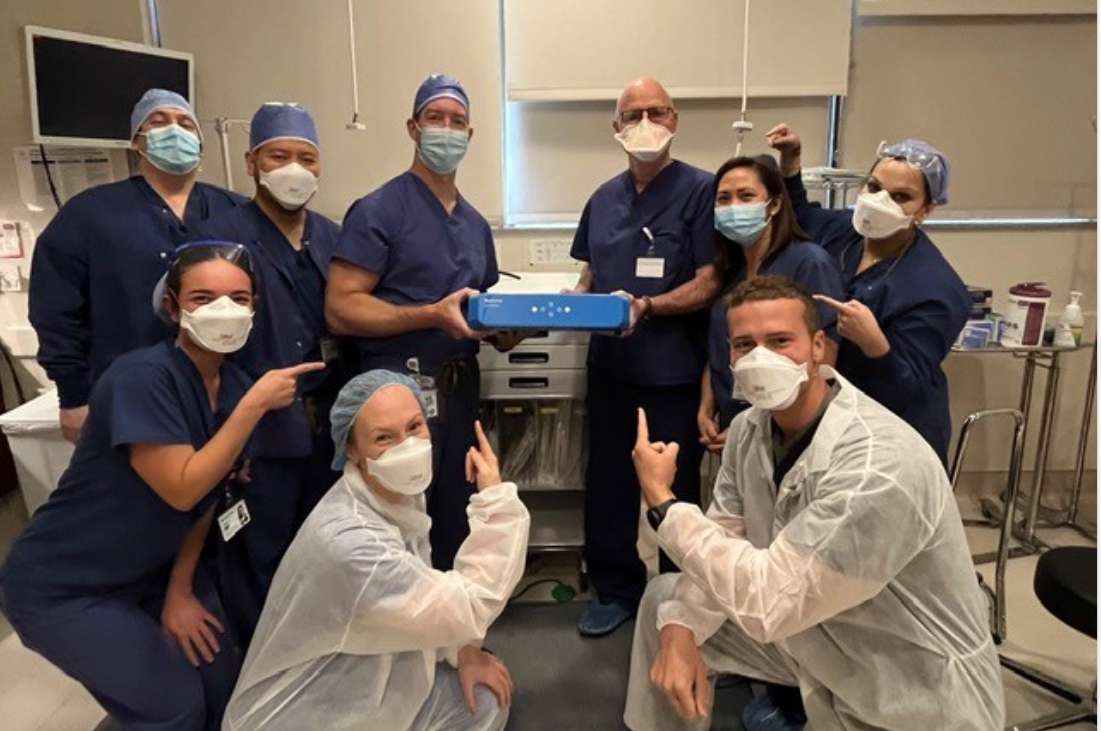By Melissa Fuson, Vitals contributor
In recent years, artificial intelligence, or AI, has become increasingly integrated into our daily routines. If you’ve ever asked Siri to play your favorite song or clicked on a product recommended to you based on your previous shopping activity – that’s AI.
Advances in AI have had a major impact on healthcare, too. AI-guided robotic surgery systems improve surgical precision and reduce invasiveness, and AI-powered systems can help prevent medication errors by verifying dosages and ensuring patients take the correct medications at the right times.
Many Sutter gastroenterologists are now using GI Genius, a “smart” endoscopy module that uses AI to help doctors identify colorectal polyps during colonoscopies.
Gastroenterologist Dr. Ashwini Anumandla has used GI Genius for her patients’ colonoscopies at Sutter’s Stockton Surgery Center for about two years.
She says the technology acts as “a second pair of eyes.”
“It’s a tool that strengthens our ability to find potentially cancerous polyps early,” she says. “It doesn’t replace the human connection in medicine, it just improves our efficiency and effectiveness.”
How GI Genius Works
GI Genius analyzes real-time images from colonoscopies, highlighting regions with visual characteristics consistent with different types of abnormalities, such as colorectal polyps.
The software scans the tissue lining of the colon as the endoscope moves through it. If its algorithm detects tissue that it considers suspicious, it puts a digital green box around it on the screen.
The gastroenterologist then decides if it’s a polyp and whether to remove it during the colonoscopy. If the polyp is removed, the doctor sends it to the laboratory for biopsy analysis.
Dr. Kuntal Thaker, a gastroenterologist with Sutter Maternity & Surgery Center of Santa Cruz, has performed nearly 2,000 colonoscopies using GI Genius.
“The technology helps us spot lesions that otherwise may have been missed,” Dr. Thaker says. “In medicine, we always want to be improving. This is a tool that makes patient care better.”
Colorectal cancer is the third most common form of cancer diagnosed in the U.S., and the second leading cause of cancer-related death.
Studies have shown that AI-assisted colonoscopies can enhance the detection of both polyps and adenomas (pre-cancerous growths). And every 1% increase in adenoma detection translates to a 3% decrease in the risk of colorectal cancer.
Berkeley gastroenterologist Dr. Vinod Kurupath, says GI Genius has helped increase his personal rate of adenoma detection.
“I’ve seen the technology progress and become more nuanced in a short period of time,” he says. “It will continue to become more and more accurate, eventually identifying which polyps are benign and don’t need to be removed.”
Dr. Thaker says he’s excited to see how new AI tools being tested now will soon help detect stomach and esophageal cancers.
“People have been talking about this technology for a long time, and the data looks great,” he says. “We’re going to see a lot more artificial intelligence in GI over the coming years.”








